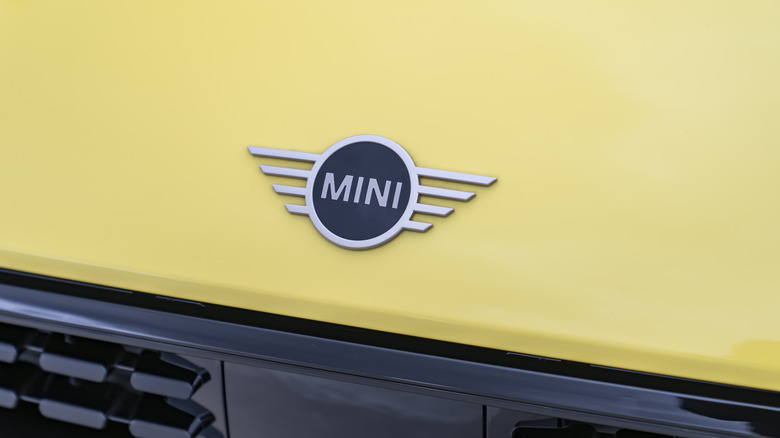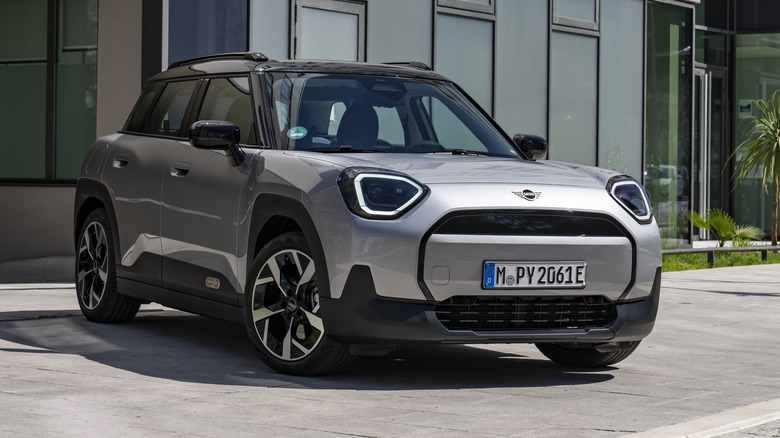Where Are Mini Coopers Made, And Who Owns The Company Today?
The UK has a rich and illustrious history of automobile manufacturing, and while many great automakers from the isles have fallen into forgotten chapters of the history books over the decades, the mighty Mini has soldiered on. Of course, the 2025 Mini Cooper is wildly different from the Issigonis-coined Mini which first debuted in 1959. However, thanks to numerous ongoing appearances on the silver screen, such as in the two "Italian Job" films, and numerous "Mr. Bean" showings, the Mini has managed to retain its British identity over the years.
Another matter that has surely helped Mini keep hold of its British values, even in spite of German ownership since 1994, is the fact that the loveable hatch is still produced in the UK. Predominantly, these cars are built at Mini's Oxford plant in Cowley, although some models are currently produced in both Germany and China.
How is Mini production spread in 2025?
Many of the classic Mini models, under Rover ownership, were produced at the Longbridge plant. This site shut down some time ago, and Mini production has moved to Oxford. Here, Mini manufactures the bulk of their models, including both the three and five-door Hatch, plus the Convertible. It's not just the latest models which have been churned out of this factory either. Rather, the Oxford plant has been instrumental to the Mini's success since the launch of the all-new BMW Mini, specifically since the R50 generation debuted back in 2001.
While much investment is being ploughed into Oxford to expand Mini production, the automaker has turned to factories abroad to produce other models. For example, the Mini Countryman is built at BMW's Leipzig factory in Germany, where it's built alongside BMW's own smaller SUVs, the X1 and X2, while production of Mini's all-electric Aceman and Cooper models is sent further afield.
Specifically, these electrified models are produced in collaboration with Great Wall Motor in China, although plans are already in place to bring the production of these models back home to Oxford by 2026. Not only will this help to boost the strength of Mini's Oxford plant, but it should also help Mini's electric models sell into countries with tariffs on Chinese-made cars, such as into the U.S.

